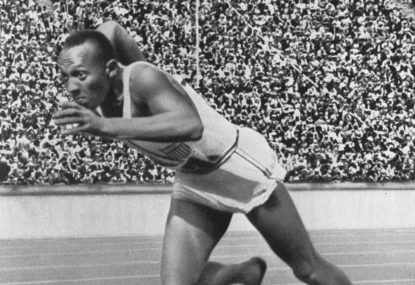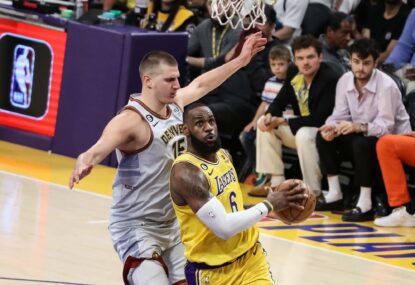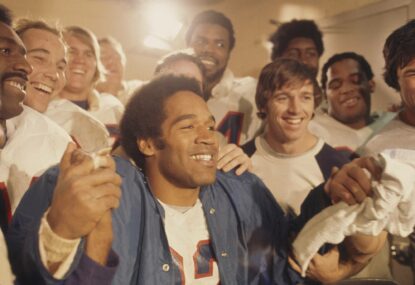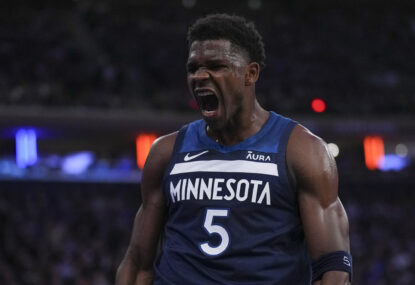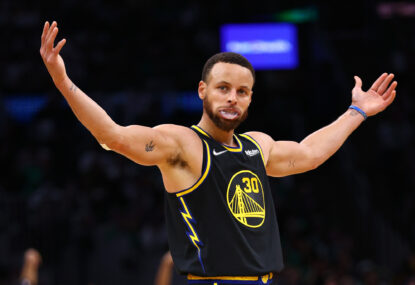Jesse Owens once stood up at a Republican rally in defence of Adolf Hitler.
It was 1936 in Kansas City and just months earlier Owens had conquered the Berlin Olympics, winning four gold medals and almost single-handedly dismantling the Nazi hypothesis of Aryan superiority.
For his achievements, Owens, the sharecropper’s son from Alabama, became the revered poster boy for America’s favourite ideals; strength, perseverance, freedom. Back at home through, without the smoke and mirrors that came with a global audience, Owens got real.
“Hitler didn’t snub me,” he said to the Missouri audience “it was our president who snubbed me. The president didn’t even send me a telegram.”
Owens wasn’t the only one to get the cold shoulder from FDR. 18 athletes in total, American and black, left Germany with 14 medals between them, a quarter of the national medal tally.
None of them ever got a call or comment from Roosevelt. Fast forward 80 years and one sports-loving president (though certainly not the first) did make a point to celebrate these achievements from another time and place by extending an invitation for relatives of those successful yet segregated American athletes to meet with him at the White House.
Speaking before the crowd last September, which also included Rio’s newly returned Olympic team, Obama recalled how African American athletes entered the Nazi-controlled state and “taught them a thing or two about democracy and taught them a thing or two about the American character … so we’re honoured to have many of their families here today.”
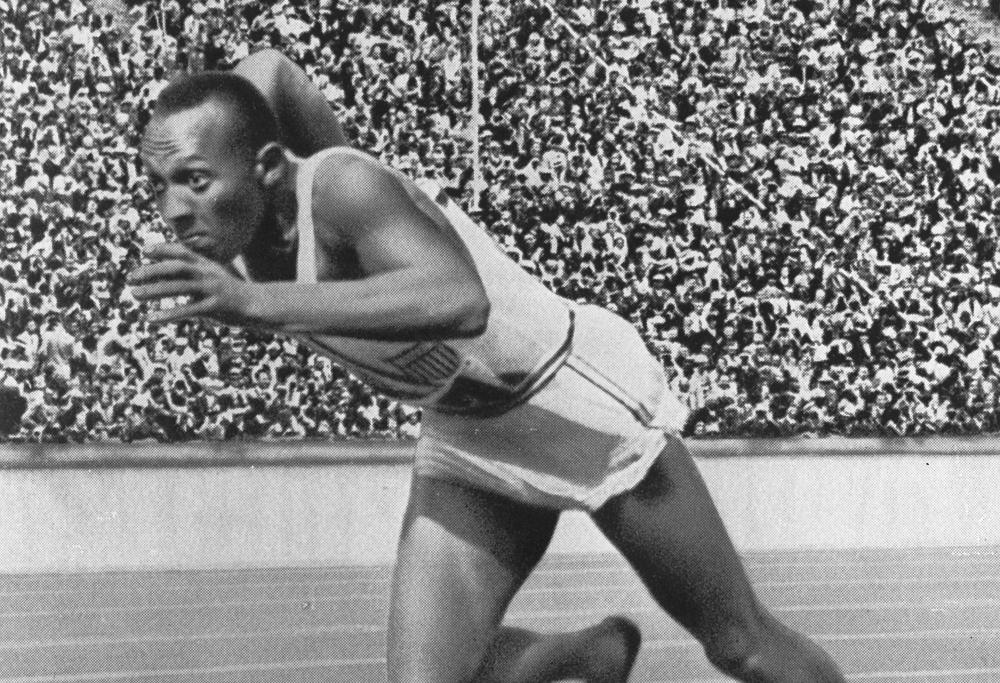
This snap happy reception was just one in a string for the Obama administration over the course of it’s eight-year reign. And champions and cynics alike would agree, busing a few sporting superstars into the East Room and making some fleeting jovial quips (shouts out to the ‘95 – ’96 Chicago Bulls) is easy press. Heartwarming.
Regardless of politics, we all love sports, and we all love winners. But Obama and team also made a concerted effort to raise the calibre of conversation around sport in America by expanding the reach and definition of that all important limelight.
In 2014 when the L.A Galaxy dropped into the White House after winning the MLS Cup, Obama hailed the bravery of Robbie Rogers, an openly gay athlete who – repulsed by Putin’s “anti-gay” law – had refused to attend the Sochi Olympics and instead sent a cohort of LGBT advocates in his place.
A year later when the US National Women’s Soccer Team visited the White House to mark their World Cup win, Obama famously declared that “playing like a girl means you’re a badass.” And this new style of presidential embrace wasn’t reserved for LGBT athletes and women; it was also shared with Paralympians, competitors from less traditional sports and even, well … non-winners.
In January 2016, Washington Wizards guards Bradley Beal and Alan Anderson were invited to sit front row in an audience with the president despite both being injured and playing for a team most didn’t give an icicle’s chance in hell of making the playoffs that year (sidenote: they didn’t). But Obama wanted to talk gun control that day, and he understood, perhaps better than any of his predecessors, that sport and those who play it at the highest levels have unreplicable power.
It’s why he hired Steph Curry to front his mentorship PSA, and it’s why LeBron came on board to encourage health insurance registrations across the country.
“It is worth remembering because sometimes people wonder, ‘Well while you spending time on sports there’s other stuff going on,’” Obama said while honouring the Chicago Cubs World Series victory – his last official athletic reception as president. “Throughout our history, sports has had this power to bring us together, even when the country is divided. Sports has changed attitudes and culture in ways that seem subtle, but, ultimately, made us think differently about ourselves and who we were.”
We are yet to see how the delicate political dance of the athletes’ White House visit that Obama engineered will fair against the sweeping storm of hysteria and contradiction that surrounds everything Trump.
Six New England Patriots have said that they are prepared to boycott the official celebration for their dramatic Super Bowl win earlier this year when the time comes. But this is hardly new news. After all, teammate Tom Brady declined his invitation from Obama in 2015, citing family commitments.
He would later keep a ‘Make America Great Again’ cap in his locker at Gillette Stadium. Others have stayed home to protest Obama’s pro-choice policies on abortion. And long before that Larry Bird snubbed Reagan, Michael Jordan snubbed George H.W Bush.
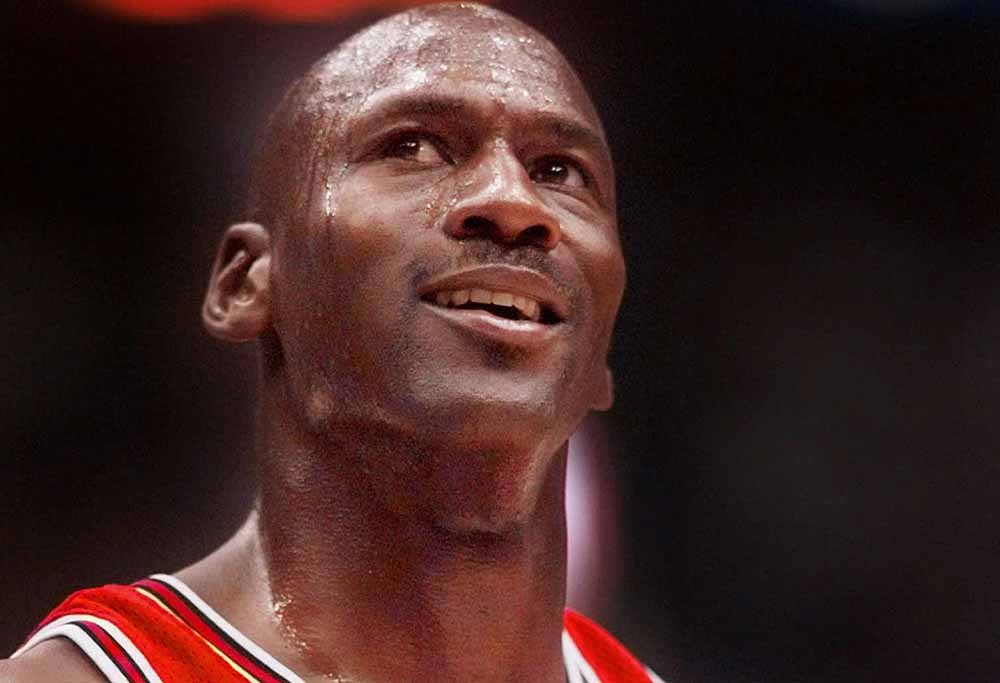
Trump’s (albeit sudden and tenuous) alignment with the Republican Party should not automatically discredit his potential to continue growing what Obama planted either. It was Republican Gerald Ford who, forty years after the fact, presented Jesse Owens with his Medal Of Freedom; and Dwight Eisenhower who later hired a bankrupt Owens as a Goodwill Ambassador for the State Department.
Like many presidents of past, Trump enjoys playing and watching sports. He’s an avid golfer, owns 17 courses in some of the world’s most desired locations, and let’s not forget that stint in the 80s when he owned the New Jersey Generals of the USFL.
Since his election, he’s already met with Major League Baseball Commissioner Rob Manfred, Yankees head Randy Levine and boxing promoter Don King, and spoken with IOC President Thomas Bach in support of Los Angeles’ 2024 Olympic Games bid.
It is obvious that Trump too can see the bright sparks of power that ripple through sport, but how that power will be utilised by the new leader of the free world, well, only time will tell.






























































































